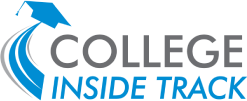BS/MD Dual Degree Programs for Future Physicians: Get into Medical School Right Out of High School with CIT Consultant Lessa Scherrer
 Dual degree programs exist for many professional programs: BA/MBA, BS/DDS, BS/DPT, etc. These programs allow high school students to get guaranteed spots in the university’s professional schools without going through the typical application process at the end of their four years of undergraduate education. Dual degree programs can save you time and anxiety. The programs may be accelerated (take 6 or 7 years instead of 8). They may allow you to skip the MCAT or GRE in your senior undergraduate year. Be sure to understand the requirements you must meet during college to stay in the program and keep your seat in the professional school!
Dual degree programs exist for many professional programs: BA/MBA, BS/DDS, BS/DPT, etc. These programs allow high school students to get guaranteed spots in the university’s professional schools without going through the typical application process at the end of their four years of undergraduate education. Dual degree programs can save you time and anxiety. The programs may be accelerated (take 6 or 7 years instead of 8). They may allow you to skip the MCAT or GRE in your senior undergraduate year. Be sure to understand the requirements you must meet during college to stay in the program and keep your seat in the professional school!
Most BS/MD programs are not accelerated, but many will allow students to skip the MCAT. In addition to full dual degree programs, Early Assurance programs, such as the University of Toledo’s, have lower entrance requirements, but do require students to take the MCAT and receive a particular score to keep their seat in the medical school. While BS/MD programs are only for high school seniors, Early Assurance programs are often accessible to undergraduates as well as high school students, meaning you have a year or so of college to try out pre-med classes before applying for the program.
Who is a good candidate for BS/MD programs?
“Applicants should exhibit qualities of altruism, academic excellence, leadership, and dedication to becoming lifelong learners through research endeavors and academic development.” (University of Arizona APME mission-driven essay prompt)
Successful BS/MD students must be sure about their decision to become physicians. This is not an end-run or side door into medical school for students who might want to go into medicine or who just want to skip the MCAT. If you want to use your college years to explore different majors or activities, you would be better off applying to a traditional college’s pre-med program.
 Students applying for BS/MD programs should achieve the highest levels. This means their grades and test scores should be near a 4.0 unweighted and an ACT/SAT around 32/1400 or higher. Be aware that these are minimums, and many of the students you are competing against will have much higher test scores than this. For example, Rutgers New Jersey Medical School/The College of New Jersey’s program reports a minimum of 34/1400 to apply but averages of 35/1530 to be successful, similar to average test scores at Harvard and Penn.
Students applying for BS/MD programs should achieve the highest levels. This means their grades and test scores should be near a 4.0 unweighted and an ACT/SAT around 32/1400 or higher. Be aware that these are minimums, and many of the students you are competing against will have much higher test scores than this. For example, Rutgers New Jersey Medical School/The College of New Jersey’s program reports a minimum of 34/1400 to apply but averages of 35/1530 to be successful, similar to average test scores at Harvard and Penn.
Future BS/MD students also need extracurricular activities supporting their application. Job shadowing, working as a certified nursing assistant (CNA) or EMT, or volunteering at a hospital or free clinic–preferably with patient contact–are activities expected of students preparing for medical school. Pre-med and early assurance students will do these things during their undergraduate years as they prepare to apply. However, BS/MD students must prepare for medical school applications in addition to regular college applications throughout high school.
In addition to the activities mentioned above, summer camps offering instruction on clinical skills can also be an excellent addition to your portfolio, as can leadership in medical-oriented clubs such as HOSA or STEM clubs such as Science Olympiad. BS/MD applications often ask how many hours you devote to each of these activities, so be prepared to put in a lot of time. And don’t forget to participate in other clubs and volunteer activities! The application for UMKC’s B.A.M.D. application asks for up to 20 activities, separated into medical and non-medical.
Scientific or medical research is another common activity for students applying to BS/MD programs. This research can be done by participating in a high-level science fair like Regeneron ISEF, mentored research at a local university, through an online research program, or by participating in a summer research program like Penn’s Biomedical Research Academy. Research that is publishable, either in medical journals or high school journals like the Journal of Emerging Investigators, is preferred because it shows that others have reviewed your work and found it worthy. It definitely takes multiple years to pull together a competitive BSMD application!
Application Process
Applying to BS/MD programs is a grueling process. Many programs require you to apply to the undergraduate college (with essays) and then apply to the BS/MD program (more essays) concurrently or after being admitted to the undergraduate college. (Some schools, like the University of Houston, also require you to be admitted to their honors college, but this is atypical.) These early deadlines are often November 1, but it may be sooner if you need to be admitted to the undergraduate program first.
 If you pass their review of your program application, you are recommended to the medical school and may need to complete a medical school application (yet more essays). If you pass the medical school application, you will be invited to interview, either in a group or individual setting. Interviews typically occur in the winter, with final decisions being made in the spring.
If you pass their review of your program application, you are recommended to the medical school and may need to complete a medical school application (yet more essays). If you pass the medical school application, you will be invited to interview, either in a group or individual setting. Interviews typically occur in the winter, with final decisions being made in the spring.
Because the process is so long, most BS/MD programs do not allow you to apply early action or early decision. Brown’s PLME and the University of Rochester’s REMS program are exceptions to this rule, although it is possible to be admitted ED to Brown or Rochester and not to the PLME or REMS program. Early decision rules still apply in this case, so unless you’d rather go to Brown or Rochester pre-med than attend any other BS/MD program, early decision may not be for you.
For those students who are certain about their goals after undergrad, dual degree programs can be a good way to get on track for professional schools. But few students are ready for professional schools in high school. In addition, these programs are often small (accepting five or fewer students per year) and highly selective (The University of Rochester’s REMS is their most selective program, with an admit rate of 1-2%), so be sure to have several good backup colleges, just in case. Your preparation for BS/MD makes you very competitive for conventional pre-med programs.
